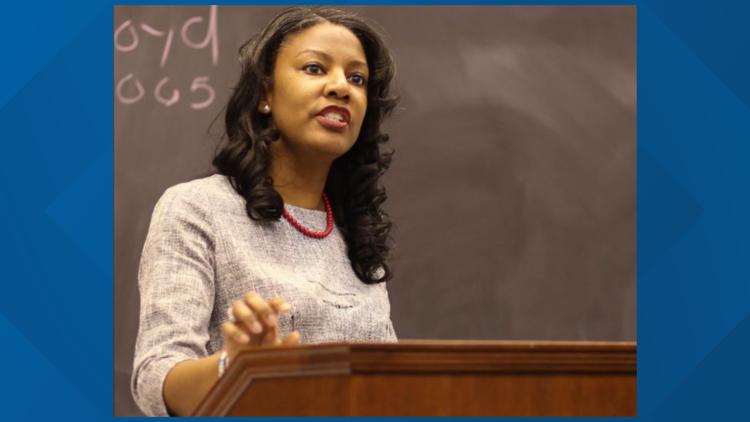ST. LOUIS — In recent years, talk about the city of St. Louis' 1% earnings tax has focused on its possible elimination.
But the city's treasurer, Tishaura Jones, says it could also be expanded — to St. Louis County.
"One idea that I had spoken with (former Missouri Supreme Court Judge Michael Wolff) about is using the freeholders process to make a city-county earnings tax, and make it a progressive structure where the first maybe $25,000 to $30,000 is untaxed, you know, obviously with an eye towards those who are poor," Jones told the Business Journal. "And then also making it progressive. The more you make, the more you pay."
Jones was referencing the Board of Freeholders, an entity empowered to change government structures in the city and county. Kicked off in 2019, it has held no substantive meetings because although the county's nine members were seated, the city's nine were not after being held up at the Board of Aldermen. Jones contends new signatures will have to be filed to launch another Board of Freeholders, as its time constraint of one year has run out. Others contend the clock may not have started since the city picks haven't been seated.
The comments from Jones, a candidate for mayor in the April 6 election, came during a mayoral forum with her opponent, Alderwoman Cara Spencer, hosted by the Business Journal. The entirety of their comments will publish the week of April 2.
A spokesman for St. Louis County Executive Sam Page, who's endorsed Jones for mayor, said in an email, "Dr. Page does not support that idea."
Wolff, dean emeritus at Saint Louis University School of Law, said a Board of Freeholders would be empowered to institute an earnings tax in St. Louis County. But "the path to actually getting it approved is rather narrow," he said, citing the requirement that voters in the city and county OK any plan.
As for the idea itself, "it does make sense," Wolff said.
The earnings tax is often derided as a potential motivating factor for why businesses would choose to locate outside of the city or relocate to the county, which doesn't have an earnings tax.
"The question is, can we make this so that the choice of whether to locate my business in the city or the county is neutral as far as taxes are concerned?" he said, adding that county voters would almost certainly require a reduction in property taxes or other "benefit" to sign on.
Asked whether such a policy could lead to business flight from both the city and county to exurban areas, Wolff said he doesn't think "that's necessarily a realistic problem."
"There might be some bleed-off of that, but you have to say, 'Would a business do that if it was reliant for workers and customers by having a critical mass nearby?'" Wolff said.
Jones made clear that the notion of taxing the earnings of residents who work and live in St. Louis County was only an idea. The city's earnings tax, which applies to anyone who lives or works in that jurisdiction, dates to the 1950s and has long been unique in the region.
Jones also said that the city should examine other alternatives, with an eye on making the government less dependent on the earnings tax, which accounts for about a third of its general revenue.
"That is just unsustainable," she said. "We need to see how we can diversify our sources of funds to make us not so dependent on the earnings tax should the voters ever decide that they don't want to pay it anymore."
In addition to choosing a mayor on April 6, city voters will also decide whether to retain the earnings tax for another five years. It would be a surprise if they didn't extend it — residents have voted to retain the tax in two past elections.
Jones also defended criticisms that the tax makes the city less competitive for business.
"There is this fallacy that the earnings tax keeps us behind or that companies move out so they don't have to pay the earnings tax," she said. "St. Louis city's earnings tax or income tax is the lowest in the country. There are cities that are the same size or larger than us that pay much more."
Click here for the full story.



